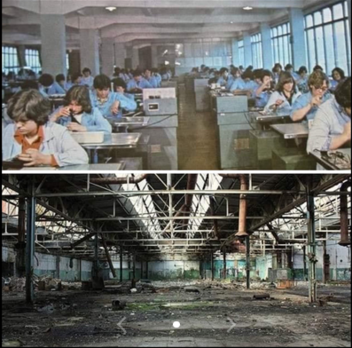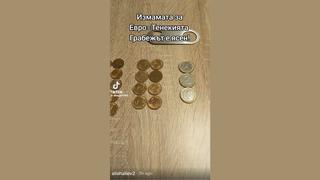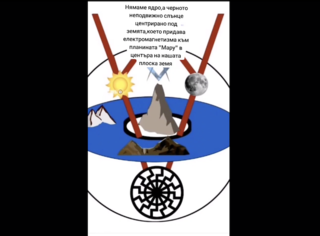
Was Bulgaria the world's second computer producer after Japan, with domestically manufactured components, including microprocessors and hard drives, in the last decade of the communist era? No, that's not true: The development and advancement of computer technology is a global effort, with many countries contributing to various aspects of the field. Bulgaria, though, had a significant role in the computer industry during the 1980s. At its peak, the country manufactured and supplied 40 percent of the computers in the socialist economic union COMECON. Key industry leaders in the 80s included the United States, the United Kingdom, and Japan.
The claim appeared in a TikTok video (archived here) published on January 9, 2023, with the following caption, translated from Bulgarian to English by Lead Stories staff:
Years ago, Bulgaria was the second country in the world, after Japan, that manufactured (I repeat: manufactured, not assembled with Chinese parts) computers. All electronic components for computers were designed and manufactured in Bulgaria, including microprocessors and hard drives!...
This is what the post looked like on TikTok at the time of writing:

(Source: TikTok screenshot taken on Wed Jan 10 20:06:34 2024 UTC)
The original source of this claim is an article from 2020 (archived here), claiming that Bulgaria was the second computer producer in the world after Japan, and the Bulgarian computer industry flourished during the end of the socialist era. Social media posts in Bulgaria have been sharing this false claim (archived here, here, and here) including this example from a post (archived here) on Facebook on January 3, 2024:

(Source: Facebook screenshot taken on Wed Jan 10 20:41:03 2024 UTC)
Bulgaria had a significant role in the computer industry during the 1980s but had never been the world's second computer producer. The country was one of the leading producers of electronic and electrical products in the Soviet bloc (archived here), and exported its computer hardware to more than 20 countries, predominantly socialist ones. Despite this, Bulgaria struggled to keep pace with Western advancements in computer technology, largely due to restrictions imposed by the Reagan Administration that limited access to American expertise. The communist government of the time made substantial investments in the technology sector, aspiring to modernize the economy and position Bulgaria as the "Japan of the Balkans" (archived here) as the leader of the Communist Party Тodor Zhivkov once said.
The Pravetz 82 computer (archived here), produced in Bulgaria, introduced a generation of young Bulgarians to computing and programming. Many of these individuals became successful entrepreneurs and innovators in the Information and Communications Technology (ICT) sector. Once Bulgaria abandoned communism and central planning, and opened its markets, it could no longer manufacture and sell its computers (archived here) which were often based on the outright pilfering of Western designs.
In the 1980s, several companies and countries were leading the computer industry:
- United States: Companies like IBM and Commodore were significant players. IBM began selling floppy disk drives in 1971, and the floppy disk quickly became the most widely used storage medium for small systems. Commodore introduced the VIC-20 home computer. Microsoft, co-founded by Paul Allen and Bill Gates in 1975, dominated the computer industry by the mid-80s.
- United Kingdom: The Sinclair ZX80, the first computer available in the UK for under £100, was brought to market in 1980 by Sinclair Research of Cambridge, England.
- Japan: The game Pac-Man was released in Japan in May 1980. Also, Red Book on Audio CDs was introduced by Sony and Philips.
















